- Home
- JoAnn Ross
A Woman's Heart Page 18
A Woman's Heart Read online
Page 18
And speaking of Cadel O’Sullivan…
As Kate retrieved her daughter and managed to get the little girl to hold still long enough to tug her sweater on, Quinn couldn’t miss the purplish mark on her cheek. Visions flooded into his head: his battered mother’s ugly bruises, her trembling hands, the tears flowing from her sunken eyes. He could hear the rough curses, the raised voices, the screams. Could smell the sickening stench of blood.
Fury clawed at his gut with razor-sharp claws; his vision went crimson with rage. His hands curled into painfully tight fists at his sides, the instinctively violent reaction reminding Quinn that, despite all the fancy trappings of wealth, deep down inside, where it counted, he was still his father’s son.
He had no doubt that if he’d known Kate when Cadel O’Sullivan had first confronted him in The Rose, things would have ended differently. Sickened by the evidence of the man’s brutish behavior on Kate’s face, equally sickened by his own knee-jerk impulse for violence, Quinn jammed his fists into his pockets and tried to decide the best way to broach the subject.
Apparently oblivious to his internal battles, Kate finished buttoning the sweater and stood up. “Well, then, if you’re ready?”
“I’ve been ready since you first mentioned the stones,” he said, deciding there’d be time to bring up her husband’s abuse later. When his head was cooler and he could more carefully censor his words.
Not for the first time since arriving in Castlelough, Quinn wondered what it was about this place that made him so quick to involve himself in people’s lives. How was it that everything got so personal so fast? If he didn’t know better, he might think there was something in the water. Or, he mused, perhaps Kate really was a witch and had cast a spell over him.
He followed her over the hilly countryside, where cows grazed in pastures fenced by stones, to an intoxicating breezy trail overlooking the sea. In the pearly light the Atlantic glistened like a precious jewel, the string of islands looking like green humpbacked sea monsters. The sight soothed his senses, and the bracing scent of salt air cleared his mind, temporarily banishing old ghosts.
“It’s not far.” Kate had been holding Brigid’s hand, but picked her up when the trail came dangerously close to the edge of the savage cliff. “It’s on the border between a field I share with the Joyces.”
That was something Quinn had noticed, that not all a farmer’s fields were adjacent to one another.
“Oh, it’s a tricky thing,” Kate explained when he asked her about it. “The land is handed down to successive generations over the years and gets all broken up. Then, a farmer who owns a field next to mine might not want to sell because it’s better land than the field next to his own house. And I might feel the same way about a field next to one of my neighbors. So we all make do, and I can’t see it changing anytime soon.”
That certainly wasn’t a surprise. From what Quinn had seen thus far, change came slowly to the west of Ireland. Which was, he thought, a great part of its charm.
The faint trail was full of wiggles and twists, cutting across headlands, heather-tinted moors and cliffs indented with hidden coves. When they came around one blind turn, Quinn stopped in his tracks.
“Wow.” Although he’d seen pictures of Celtic stone circles, he wasn’t prepared for the actual sight. It was staggering. Suffused in the luminous misty sea light were the sixteen man-size gallans—standing stones—surrounding a huge recumbent stone in which lines and swirls had been chiseled. They were located in a small grove of ancient oak trees that had somehow managed to escape the ax back when Richard II plundered Irish woodlands for timbers to build the roof of London’s Westminster Hall.
“The symbols are ogham,” Kate explained, running her fingers over the etchings.
“A bardic alphabet,” he said, remembering from his research.
“The letters are symbolic, with each letter standing for a variety of ideas relating to Celtic philosophy.”
“Like a secret code, of sorts, to keep the common folk from reading the writings.”
“Aye.” She sighed at that less than democratic idea. “There are legends of entire libraries written in ogham, where all the ancient stories were preserved. Although the old Greek and Roman chronicles suggest they were mostly used for casting spells.”
Since the stones were a good distance from the cliff, she put her daughter back down on the ground. Quinn smiled as he watched the toddler begin to twirl like a laughing dervish.
“She feels the magic,” he suggested. Quietly, because he was feeling it again himself.
“I’ve thought that, as well,” Kate said. “She was just a babe, less than six weeks when I brought her here the first time. She was plagued with colic, a poor wee unhappy thing she was, squalling her head off all the way along the cliff. Until I took her into the circle.
“Then she immediately hushed and I watched her looking around, and although I know there’s many who’d suggest it was only gas, I watched her smile. And listen. And I knew she was hearing the voices of those who’d come before.”
“I probably wouldn’t have believed that a month ago,” Quinn said.
“And now?”
He’d never seen a woman more in her element than Kate appeared at this moment, watching her daughter dance with fairies. “And now I guess you’d have to call me an agnostic.”
She laughed at that. “Ah, isn’t the magic getting to you now, Quinn Gallagher.” Her voice sounded like wind chimes in a brisk morning sea breeze. “Another few weeks and we’ll be making a true believer of you.”
Quinn smiled back, feeling none of the tension with this lovely intelligent woman that he experienced with her sister-in-law. “It almost seems as if she’s hearing some type of music,” he said, watching the toddler spin from rock to rock.
“I suppose that isn’t so surprising, since my grandmother on my mother’s side was an Early. Which means the blood of Biddy Early flows through her young veins.”
“I think I hear a story coming.”
“We do like our stories,” Kate agreed cheerfully. “Even those of us who aren’t seanachies, like Brady. Biddy Early was from County Clare. It’s from her that Brigid gets her bright copper hair.
“Biddy was a famous healer with the gift of Sight, who outlived three husbands and invited a great deal of local gossip upon herself by marrying a fourth time—to a fine, much younger handsome man—when she was in her eighties. When she died, the parish priest, who, needless to say, did not look with favor upon her practice of white magic, took her fortune-telling bottle from her cottage and cast it into the tarn of Kilbarron, where it remains to this day.”
“So now you carry on the family tradition.”
“In a way. When people come to me with problems, it’s difficult to turn them away. I was baptized into the Church and confirmed, as well, yet I can’t help believing, despite what Father O’Malley preaches, that if I wasn’t meant to be following the Old Way, I wouldn’t have been given the gifts of the ancient ones.”
“Makes sense to me.” Quinn had never been a fan of any organized religion. “So if it’s not too personal a question, may I ask if you inherited Biddy Early’s gift of Sight?”
He was almost tempted to also ask if she could see what lay ahead for him and Nora. But not wanting to get into a discussion about a relationship he still hadn’t been able to define, he refrained.
“Aye. A bit of it, at any rate. But I never see anything I might need to know myself unfortunately. Mostly it’s just shadows.” Like the ones that had lingered uncomfortably after last night’s dream, she thought, experiencing another fleeting twinge of something she could not quite explain.
Knowing there was no point in forcing a vision, Kate turned her thoughts back to Quinn’s question. “There are rare occasions when a vision comes more clearly. I saw my brother Conor’s accident, for example, but I had no way of telling when it would happen or where. I tried to warn him, but he was a stubborn man, overbrimming with self-confid
ence, and would be hearing none of it.”
“How did Nora respond?”
“Oh, I didn’t tell her. I’ve never believed it’s my place to tell people bad news that can’t be avoided. It hurt our friendship for a time, but Nora’s a good-hearted person and has never been one to hold a grudge.”
When Brigid came running across the circle, Kate scooped her up, braced her against her hip and gave Quinn a serious look. “Nora’s not had an easy time of it. And she’s in for more pain.”
“If you’re suggesting I’m going to hurt her…”
“Oh, you will, indeed. But isn’t that the way with men and women?” Shadows moved across her expressive blue eyes like clouds across the sun. “But something else is going to happen to someone she loves. I haven’t been able to see who. Or when.
“The worry has been deviling my sleep, and when I’m awake, it hovers on the edge of my thoughts like the lingering fragments of a dream I can’t quite recall. I’ve even tried coming up here every day, but it hasn’t helped.
“But I do know that Nora will be needing you to stand by her, Quinn. To offer her strength in a trying time.”
“I’ll do my best.” It was time to bring up Kate’s own troubles, he thought as they turned away from the stones and began walking back down the twisting path. “Speaking of trying times, perhaps I should have a little talk with your husband.”
“Cadel?” Her head spun toward him. “What would you be wanting to talk with Cadel about?”
“How about suggesting that if he lays a hand on you again, as your new friend, I’ll have no choice but to beat the living daylights out of him?”
Her face went as pale as glass. “I don’t know what you’re talking about.”
“You’re a delightful woman, Kate Fitzpatrick O’Sullivan, but you’re a lousy liar.”
Because he knew from personal experience that this could well be an issue of life and death, Quinn decided to forget about concealing his harsh childhood and go for broke.
“My father used to beat my mother. I tried to help, but all that ever happened was he’d beat me, too. Then be even harder on her.”
Kate looked away, as if unable to bear the pain she could no doubt read in his eyes. “I’m sorry.”
“So was I. He got sent to prison for killing a man in a drunken brawl. The jury convicted him of manslaughter. I wasn’t old enough to understand the logistics, but I did understand that he wouldn’t be coming back for a long time. And when the sheriff called to tell my mother that my father had been fatally stabbed in a prison riot, I was probably the happiest kid in the entire state of Nevada.”
“That’s so sad,” she murmured. “That a boy would be celebrating his father’s death. And your mother? How did she feel?”
“I have no idea. I never understood what made her stay with him in the first place. And I sure as hell never understood why she kept bringing home the same sort of violent men.” Quinn stared out over the glistening blue-green water that looked so calm on the surface. But he knew, better than most, how deceiving appearances could be. “One of them killed her when I was nine.”
“And the little boy who witnessed his mother’s death grew up to write The Night of the Banshee.”
He turned back toward her. “You’re a perceptive woman, Kate O’Sullivan. And you deserve better.” Although she was not yet old enough to understand his words, Brigid was looking up at him, her blue eyes suddenly as serious as her mother’s. As if she was sensing the mood swirling between the two adults. Quinn skimmed a hand over the silky copper curls. “Your daughter deserves better. And so does Jamie.”
“I know.” Kate absently touched her fingers to her bruised cheek. “Cadel’s away right now, gone to stay with his cousin in Dungarven. When he comes back, I’ll be telling him there’s no place in our lives, or my home, for him any longer.”
Quinn wished it was that easy. But he suspected O’Sullivan would not take such news without putting up a fight.
“If you need any help…”
“I’ll ring up Sergeant O’Neill.”
“I’m closer.”
Although there was nothing humorous about the topic, Kate laughed. “For a man who likes to keep to himself, you’ve certainly gotten yourself involved in a great many entanglements since arriving in Castlelough, Mr. Gallagher.”
Not bothering to ask how she knew his nature, Quinn laughed, too. “You’re telling me. If only I’d met you sooner, perhaps you could have read my palm, or thrown my stones, or whatever you druidic witches do to tell the future, and warned me of all the pitfalls I was going to encounter.”
“Warnings are one thing. Behavior quite another entirely. I have the feeling you’ve seen most of those pitfalls yourself. And walked straight into them, anyway.”
“With my eyes wide-open,” he agreed, silently vowing to have a little heart-to-heart talk with Cadel O’Sullivan when he returned from sulking at his cousin’s.
“I know you and Nora are close,” he said, “but I’d like to ask a favor.”
“Don’t worry. I’ll not be telling her about your childhood, Quinn. That’s a story for you to share with her. If you choose.”
If you choose. The words sounded so simple. But once again Quinn was forced to wonder if he’d had a choice about anything concerning Nora since his arrival in Ireland.
They were back in Kate’s kitchen, sipping their way through a pot of tea while Brigid napped, when John came rushing in the door.
“Aunt Kate!” He was obviously winded, giving the impression he’d run across the fields from the Joyce farm. “You have to come.” He bent over, put his hands on his knees and drew in a deep draught of ragged breath. “Nora needs your car.”
“What’s wrong?” Quinn was out of his chair in a shot. “Is it Nora?” His hands curled around the boy’s upper arms, pulling him upright. “Has something happened to her?” Myriad pictures of farm accidents he’d witnessed while growing up, none of them pleasant, most grisly, swam to the forefront of his mind.
“No.” John Joyce’s eyes were wide, his face pale with red splotches riding in his cheeks.
“It’s Fionna,” Kate said quietly.
“Aye.” John seemed unsurprised by his aunt’s knowledge. “Nora got a call from the hospital.” He paused to take another deep breath, forcing Quinn to rein in his impatience. “There was a bombing at a mall where Gran was shopping in Derry. She’s been injured and taken to hospital. Since Nora wanted to keep the phone line open, in case the Garda might call, she sent me to borrow your car.
“Da’s in the village with ours, so Nora needs yours to go fetch him. Then she’s driving to Galway to catch a flight to the North.”
“That’s not necessary.” It was Quinn’s turn to shoot a look Kate’s way. “Call Sergeant O’Neill and ask him to pick Brady up at The Rose and bring him home. I’ll drive Nora and him to Galway.”
“Fine,” Kate said. Although she was pale, her voice and her hand, as she reached for the telephone, were steady. “Shall I be calling the airline to see about flights?”
“That’s not necessary, either. I’ll arrange a charter to be waiting for us.”
“Perhaps I can reach your assistant and have her ring Galway airfield for you.”
Thinking she had one of the coolest heads in a crisis he’d ever witnessed, Quinn let go of John, then took hold of Kate’s shoulders and gave her a quick kiss that held not a hint of lust. Only heartfelt gratitude.
“Her name’s Brenda Michaels. She should be at Flannery House. She’s got all my credit-card numbers, so she shouldn’t have any problems. Tell her there’ll be at least three people, maybe more,” he said, remembering that Nora had an older brother, Michael, who lived on a nearby farm.
“I want the largest, most comfortable plane available and I don’t care if it ends up being an Aer Lingus jet. Tell Brenda I’ll have the cell phone in the car. She’s to phone me with any news she can find out.” He took a pen and business card from his pocket and scribble
d down the cellular number and handed it to Kate.
“Consider it done,” Kate said. “And please tell Nora that I’ll spend the night at the house to tend to the children.”
“You’re a pearl among women, Kate Fitzpatrick O’Sullivan. It’s too bad your husband’s too damn dense to know what a treasure he got when he married you.”
Despite the gravity of the situation, Kate smiled. “You do have a way of knowing what to say, Quinn Gallagher. No wonder Nora’s fallen head over Wellies over you.”
So Nora had talked with her sister-in-law about him. Although that came as no surprise, Quinn was more than a little relieved that at least some of the discussion appeared to have been positive.
Then, putting aside his own problems concerning his luscious landlady, he put a reassuring arm around Nora’s youngest brother’s shoulder. “Come on, John,” he said with a robust tone meant to bestow confidence. “Let’s go take care of your sister.”
Quinn found Nora in the kitchen with Mary. “There’s lamb stew for tonight,” she was saying. “And in the morning, make certain Rory and Celia eat something before going off to school. There’s porridge—”
“Celia always complains I make it too lumpy.”
“Perhaps it’s time for Celia to learn that you can’t always avoid lumps in life,” Nora snapped uncharacteristically.
“Well spoken,” Quinn murmured. “But perhaps Celia can learn that little life lesson some other time. Kate’s on her way over. She’s spending the night, so she can take care of feeding the troops.”
Nora had spun toward the door when he’d first spoken. Despite her remarkably steady voice as she’d instructed Mary on the domestic chores, her eyes were filled with panic.
“Oh, Quinn.” Acting on impulse, as he’d discovered she so often did, she rushed across the room and practically hurled herself into his arms. “You were at Kate’s,” she remembered. “So you know.”
“Yes.” A tide of warm emotions flowed through him, as deep as the Irish sea. “Brady’s on his way home, and as soon as he arrives, I’m taking you to Galway. Then on to Derry.” He stroked the wild waves of her hair in a gesture meant to calm rather than arouse, then pressed a light kiss to her brow. “Why don’t you go toss a few things into an overnight bag?”

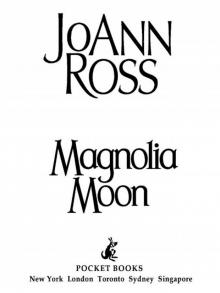 Magnolia Moon
Magnolia Moon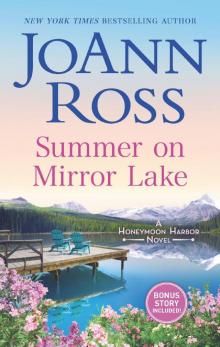 Summer on Mirror Lake
Summer on Mirror Lake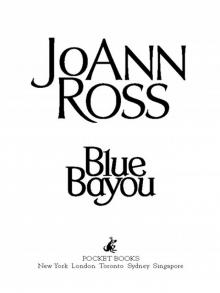 Blue Bayou
Blue Bayou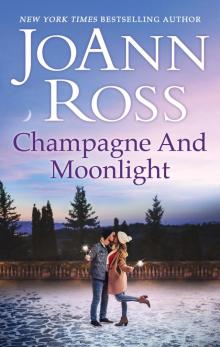 Champagne and Moonlight
Champagne and Moonlight No Regrets
No Regrets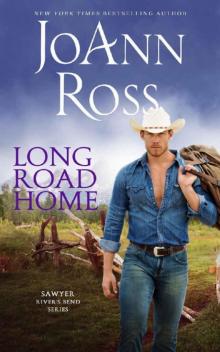 Long Road Home
Long Road Home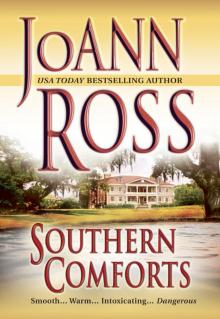 Southern Comforts
Southern Comforts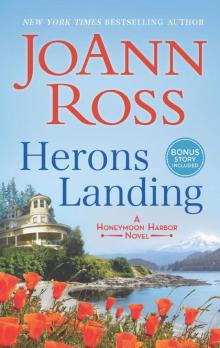 Herons Landing
Herons Landing Untamed
Untamed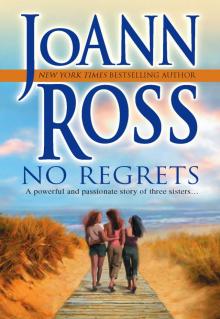 No Regrets (Mira Romance)
No Regrets (Mira Romance)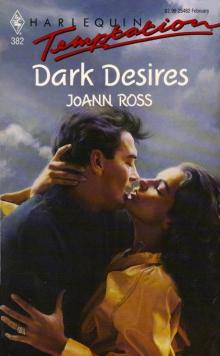 Dark Desires
Dark Desires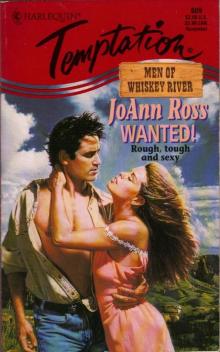 Wanted!
Wanted!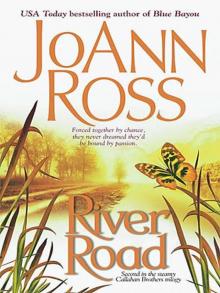 River Road
River Road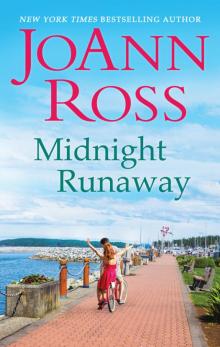 Midnight Runaway
Midnight Runaway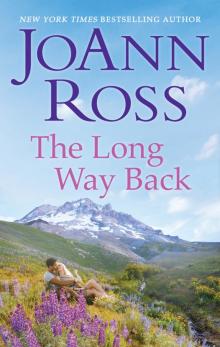 The Long Way Back
The Long Way Back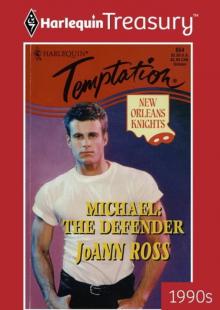 Michael: The Defender
Michael: The Defender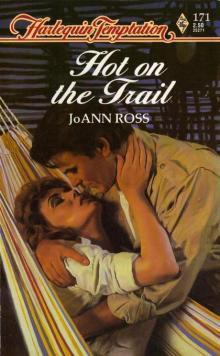 Hot on the Trail
Hot on the Trail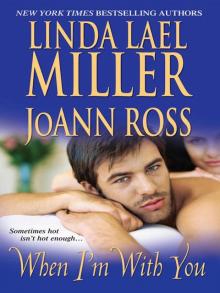 When I'm With You
When I'm With You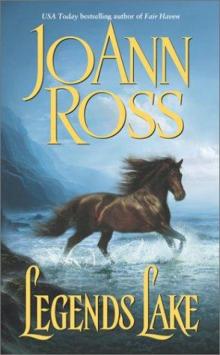 Legends Lake
Legends Lake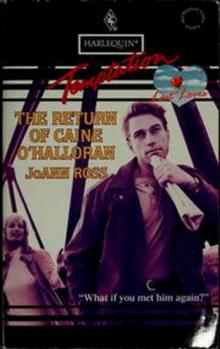 The Return of Caine O'Halloran
The Return of Caine O'Halloran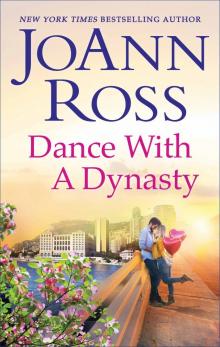 Dance with a Dynasty
Dance with a Dynasty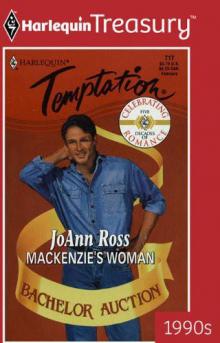 MacKenzie's Woman
MacKenzie's Woman Impulse
Impulse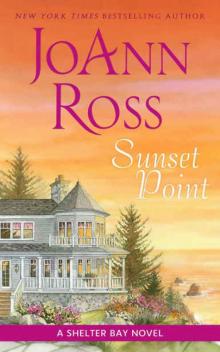 Sunset Point: A Shelter Bay Novel
Sunset Point: A Shelter Bay Novel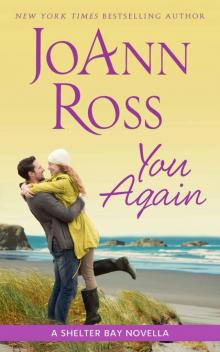 You Again: A Shelter Bay novella (Shelter Bay series Book 8)
You Again: A Shelter Bay novella (Shelter Bay series Book 8)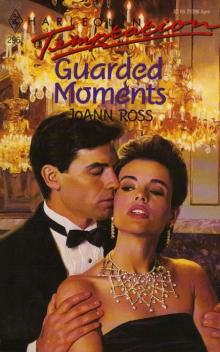 Guarded Moments
Guarded Moments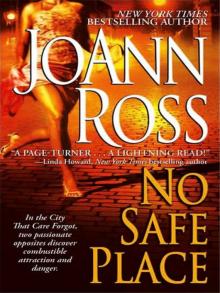 No Safe Place
No Safe Place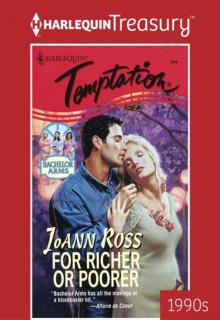 For Richer or Poorer
For Richer or Poorer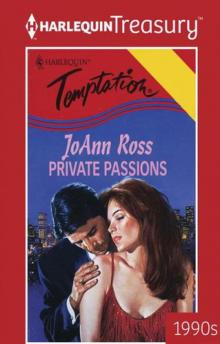 Private Passions
Private Passions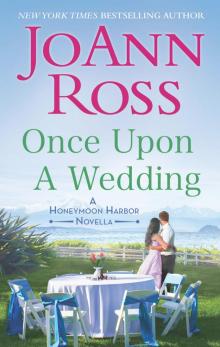 Once Upon a Wedding
Once Upon a Wedding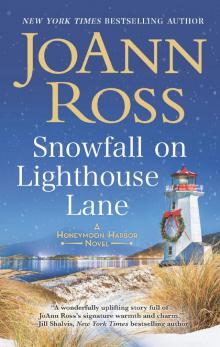 Snowfall on Lighthouse Lane
Snowfall on Lighthouse Lane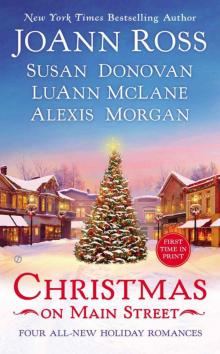 Christmas on Main Street
Christmas on Main Street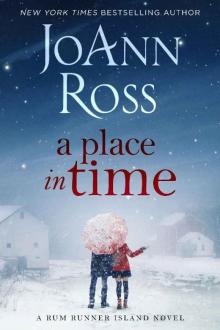 A Place in Time (Rum Runner Island Book 1)
A Place in Time (Rum Runner Island Book 1)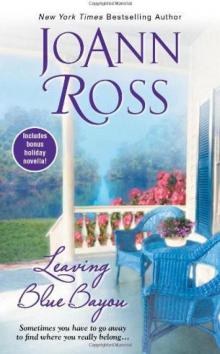 Leaving Blue Bayou
Leaving Blue Bayou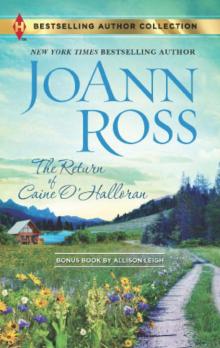 The Return of Caine O'Halloran: Hard Choices
The Return of Caine O'Halloran: Hard Choices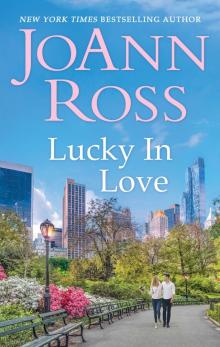 Lucky in Love
Lucky in Love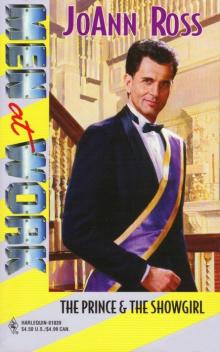 The Prince & The Showgirl
The Prince & The Showgirl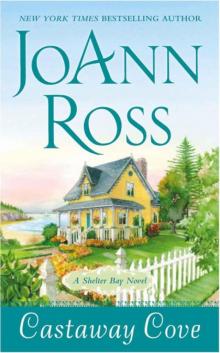 Castaway Cove
Castaway Cove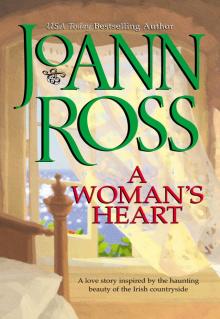 A Woman's Heart
A Woman's Heart One Summer
One Summer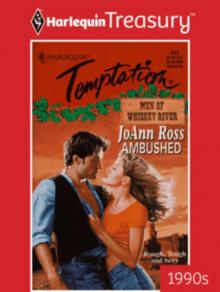 Ambushed
Ambushed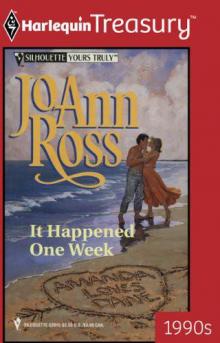 It Happened One Week
It Happened One Week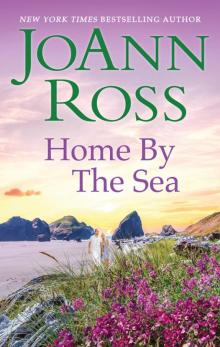 Home by the Sea
Home by the Sea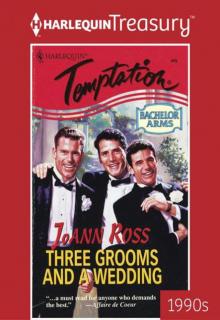 Three Grooms and a Wedding
Three Grooms and a Wedding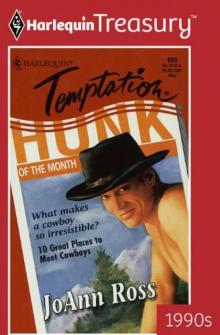 Hunk of the Month
Hunk of the Month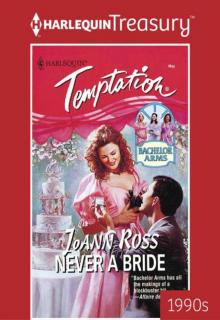 Never a Bride
Never a Bride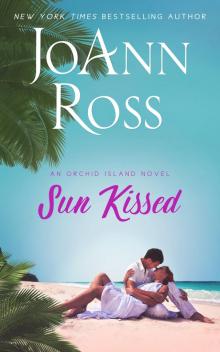 Sun Kissed
Sun Kissed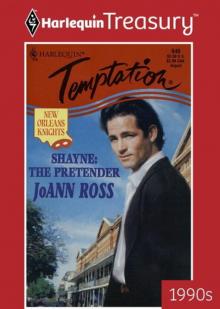 Shayne: The Pretender
Shayne: The Pretender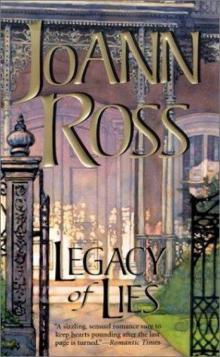 Legacy of Lies
Legacy of Lies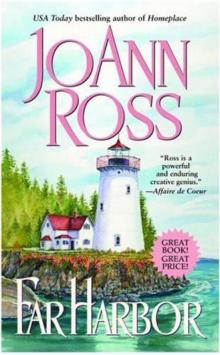 Far Harbor
Far Harbor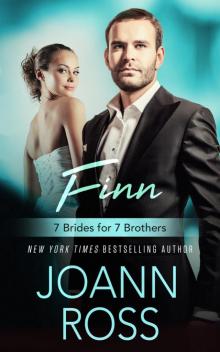 Finn
Finn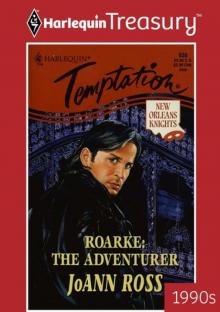 Roarke: The Adventurer
Roarke: The Adventurer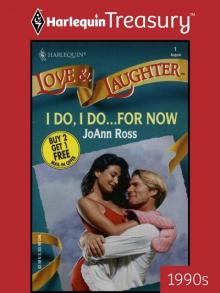 I Do, I Do...For Now (Harlequin Love and Laugher)
I Do, I Do...For Now (Harlequin Love and Laugher)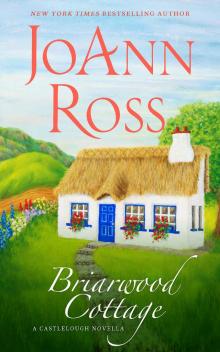 Briarwood Cottage
Briarwood Cottage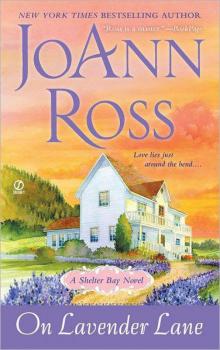 On Lavender Lane
On Lavender Lane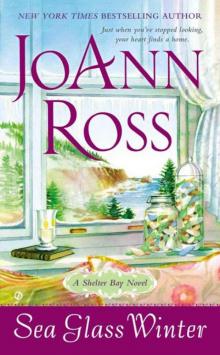 Sea Glass Winter
Sea Glass Winter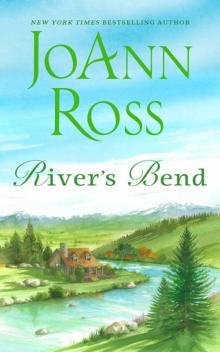 River's Bend
River's Bend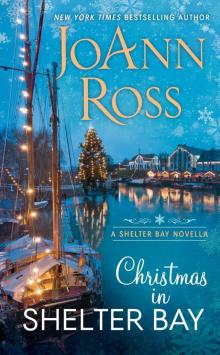 Christmas in Shelter Bay
Christmas in Shelter Bay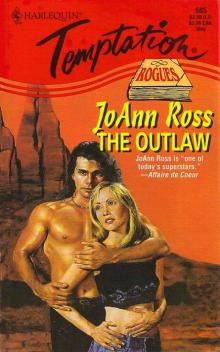 The Outlaw
The Outlaw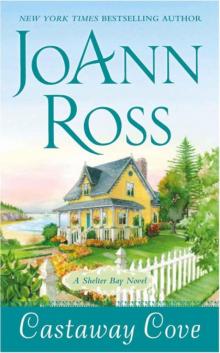 Castaway Cove (2013)
Castaway Cove (2013)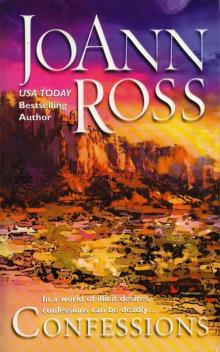 Confessions
Confessions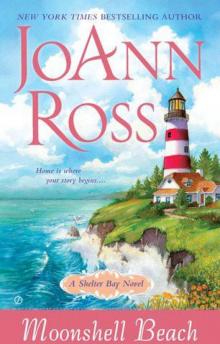 Moonshell Beach: A Shelter Bay Novel
Moonshell Beach: A Shelter Bay Novel